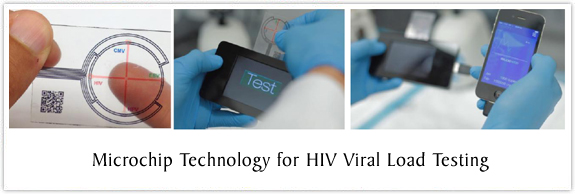SRM Student Selected for BWH Bright Future Research Award at Harvard

Sultan Khetani, a postgraduation student of the department of Biomedical Engineering at SRM University, is one of the three finalists competing for the 'BWH Bright Future Research Award' 2014. His research on 'Low Cost Hand held Microchip Device for Rapid HIV Detection and Treatment Monitoring Through Viral Load Measurement on Paper' done as part of the Students Abroad Program (SAP) at Harvard-MIT Health Sciences and Technology has been selected.BWH Bright Future Research Award is a prestigious award with cash price of $100,000 for which more than 200 teams from Harvard and MIT affiliates compete. The wining team is selected based on online voting by people around the world, which will start from 22nd September' 2014.
Human immunodeficiency virus (HIV) has caused more than 39 million deaths and it is still taking lives of more than 1.5 million people per year. Expanding access to HIV therapy in developing countries has already averted more than 5.5 million AIDS-related deaths. However, some of the major challenges in expanding access to effective therapy, especially in low- and middle-income countries, is early diagnosis and regular treatment monitoring.
The research work on 'Low Cost Hand held Microchip Device for Rapid HIV Detection and Treatment Monitoring Through Viral Load Measurement on Paper', by Hadi Shafiee, PhD, Harvard Medical School and Sultan Khetani focuses on a technology that in form of a low-cost, flexible microchip which enables HIV viral load testing. Monitoring HIV levels in a person’s blood, known as viral load testing, is the most accurate and preferred method to see whether treatment is working.The majority of HIV viral load testing options available today are expensive, laboratory-based, time-consuming, and complex. Therefore, these tests cannot be used in low- and middle-income countries, and there is currently no commercially available point-of-care HIV viral load device that meets the requirements for these countries.
Through this research work, Sultan Khetani and Hadi Shafiee have invented a technology that enables HIV viral load testing using a finger prick of blood placed on a disposable paper with flexible electrodes. The microchips can be made using printing technology that is currently available to anyone, even those in low- and middle- income countries. The test is as simple as glucometers and the cost per microchip is very less. The viral load device can potentially transmit the test results to a central laboratory or physician through cell phone communication.
A strong team of experts in engineering, microtechnology, nanotechnology, virology, and business were brought together for this highly interdisciplinary project. Along with Hadi Shafiee, PI, Project Supervision and Sultan Khetani, Bioengineer Assay Development, the team involved Daniel R. Kuritzkes and Joseph V. Bonventre, the Clinical Advisors, Timothy J. Henrich, HIV Expert, Manoj Kumar, Nanotechnologist Assay Development, Emily Hanhauser Technician Assay Validation with Patient Samples and Ario Arabi, Business Advisor, Business Plan Writing.
This platform technology is unique with broad applications, and can be adopted to detect multiple infectious diseases such as hepatitis,influenza, and herpes. This invention can potentially revolutionize HIV management globally as it will facilitate rapid, simple, and inexpensive early diagnosis of HIV infection and treatment failure for millions of people in urgent need.
Post Your Comments for this News
Related Articles
-
Tips for Teaching Coding in Classroom
2017-06-16 12:39:35
-
How to Prepare for Student Orientation Day
2017-05-18 12:53:05
-
World Day for Cultural Diversity for Dialogue and Development.
2017-05-18 10:27:42
-
Big Data for Big Impact #WTISD-17
2017-05-17 09:28:16



